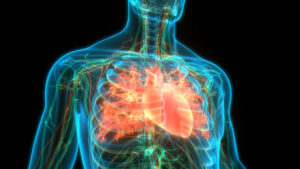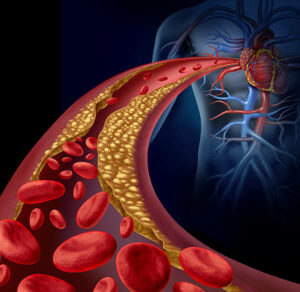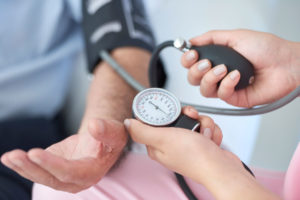When people think of medical care, the most common image that comes to mind is family medicine providers providing medicine or performing surgery. However, the best way to address a health condition is to detect it early, while it is still a minor problem — or prevent it from occurring at all.
Preventative care is a proactive medical approach that, if done well, will often go unnoticed. It aims to equip you with the tools to avoid getting sick altogether.
Three Types of Preventative Care
Preventative care covers measures taken to prevent health conditions from developing. Sometimes, preventative care may involve treating a disease before any symptoms manifest at all.
Primary Prevention
Primary prevention involves using measures like vaccinations and healthy lifestyle choices to stop diseases before they happen. They also help prevent non-infectious health conditions from occurring. Primary prevention methods include:
- Vaccinations: These give the body the tools to fight infectious diseases before they worsen. Vaccinations can turn life-threatening diseases into mere inconveniences, and patients might not even feel the symptoms of milder infections.
- Healthy lifestyle choices: Helps cover things like balanced nutrition, regular exercise, and ergonomic spaces. Living a healthy lifestyle can prevent or delay health conditions such as arthritis, diabetes, and some heart conditions.
Secondary Prevention
Secondary prevention techniques help primary care providers detect diseases and health conditions that already exist. However, they aim to discover these health conditions while they are still in their early stages and comparatively easy to treat.
Secondary prevention methods are covered by regular health screenings and check-ups. Seeing your provider for a wellness visit or annual physical is part of secondary prevention. Some other examples include:
- Mammograms for breast cancer
- Colonoscopies for colorectal cancer
- Blood pressure monitoring for hypertension
- Blood sugar tests for diabetes
Testing is crucial for catching diseases in their early, more treatable stages, often before symptoms are even noticeable. Secondary prevention also includes educating people about recognizing early signs of diseases and the importance of regular health check-ups.
Tertiary Prevention
Tertiary prevention in healthcare involves managing health conditions that already exist and mitigating their effects. It aims to manage disease symptoms and prevent side effects.
Practicing tertiary prevention also involves daily management of a health condition, along with regular monitoring. Tertiary prevention methods help:
- Limit Physical and Mental Decline: Healthcare professionals will use physical therapy and other techniques to help rehabilitate a patient. Their goal is to help a patient live a fulfilling life both physically and mentally, particularly for those with chronic illnesses or who have undergone major surgeries.
- Prevent Complications: Some health conditions, such as diabetes and heart disease, create a risk for additional complications that make the condition worse or create other health issues.
- Support and Education: Primary care providers and other medical professionals will equip their patients with the knowledge to understand and manage their conditions on their own.
- Ongoing Monitoring and Treatment: Some health conditions require continuous monitoring and maintenance to ensure the patient’s quality of life, and sometimes survival.
Benefits of Preventative Care
Early detection of illnesses through regular screenings can lead to more effective treatments. Detecting a disease early will often make surgery unnecessary, and even if surgery is the best course of action, it is often minimally invasive.
- Reducing the Risk of Chronic Diseases: Preventative care helps mitigate the development and progression of chronic diseases such as heart disease, diabetes, and cancer through early detection and lifestyle modifications.
- Early Detection and Treatment of Illnesses: Regular health screenings and medical check-ups enable the early identification of health issues, leading to more effective and less invasive treatment options.
- Cost-Effectiveness in Healthcare: By preventing or detecting diseases early, preventative care reduces the need for expensive treatments and hospitalizations, thereby lowering overall healthcare costs.
- Improving Quality of Life and Longevity: Through proactive health measures, individuals can enjoy a higher quality of life with fewer health complications and increased lifespan.
Preventative Care Across Different Life Stages
Preventative care strategies vary across life stages. The kind of care a person needs and should receive varies depending on their age and health.
- Childhood and Adolescence: This stage emphasizes vaccinations, developmental screenings, and education on healthy habits.
- Adulthood: Adults need regular screenings, such as blood tests.
- Senior Years: Primary care providers shift their focus to screening for age-related conditions such as arthritis.
- Special Considerations: Women’s and men’s health require tailored approaches, including reproductive health and sex-specific screenings.
Primary Care Near Me in Wellington, FL
Preventative care is a proactive approach to maintaining health and well-being. It does two things: it prevents disease and encourages people to be more proactive about their health and lifestyles.
Proactive health management begins with you. Regular check-ups, a healthy lifestyle, and staying informed are all things you can do that benefit yourself and your health. Consult with us at the Advanced Medical Clinic about which preventative services are best for your lifestyle.
Embrace preventative care – your future self will thank you. Call us at (561) 434-1935 or book an appointment through our website.











